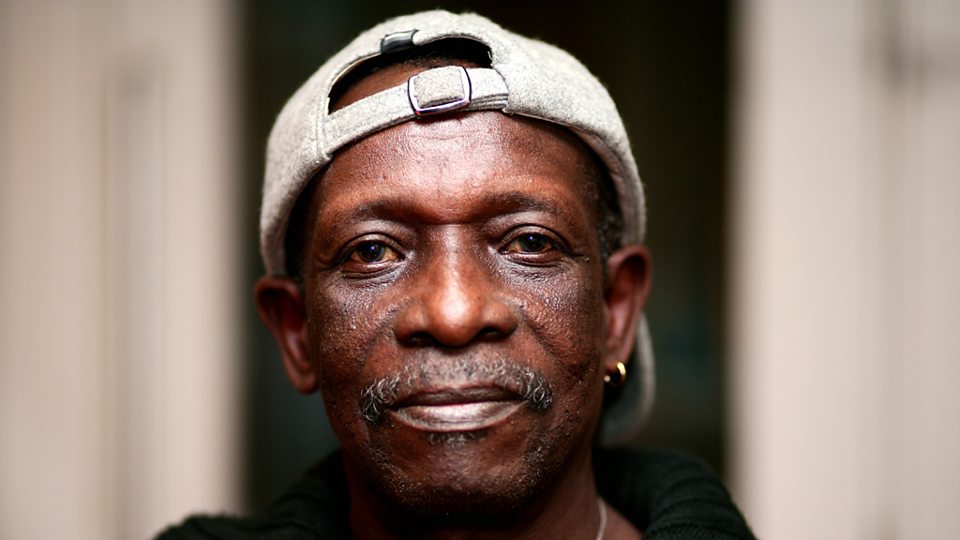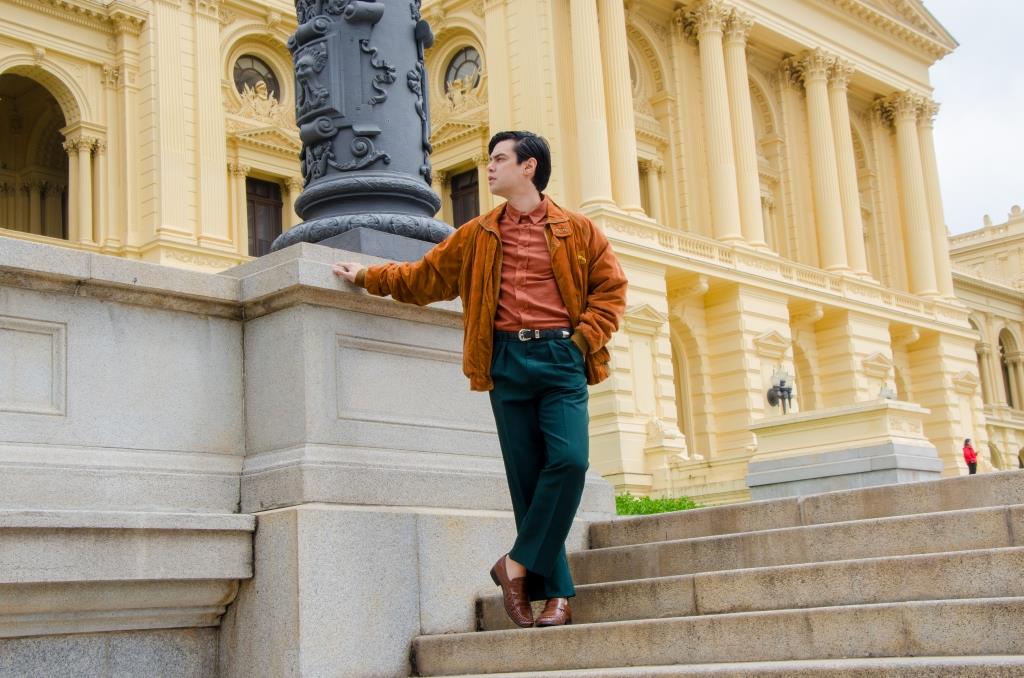Showbiz
Remembering Legendary Nigerian Drummer Tony Allen

By Kester Kenn Klomegah
Exactly in August 2009, legendary Nigerian drummer, Tony Allen, who created the Afrobeat along with his old bandmate, Fela Kuti, and I had our first historical meeting in Paris, France.
I had flown in from Shanghai, China, to meet with him for an informal encounter. Despite our heavy working schedules and limited time, the meeting lasted for about two hours.
During the discussions, I asked him several questions about his professional musical career and life. In fact, he was extremely passionate and enthusiastic talking with me, and to remember him here are a few excerpts:
When did you begin your musical career and who are your favourite musicians?
My career started at the age of 20. In fact, I was hired by Sir Victor Olaiya to play claves with his highlife band, “the Cool Cats” and was able to fill the drum-set chair when the former Cool Cats drummer left the band. I also played with Agu Norris and the Heatwaves, the Nigerian Messengers and the Melody Makers.
In 1964, I joined Fela’s ‘Koola Lobitos’ and stayed with Fela for 15 years. When I was learning to play, I’d check out LPs and magazine tutorials by Gene Krupa, Art Blakey and Max Roach, Guy Warren was also an influence. Of course, I was also a fan of Elvin Jones, Tony Williams and Bernard Purdie.
I was asked to name my dream band to play with, and I chose: Oumou Sangare and Salif Keita on vocals, Bootsy Collins on bass, George Benson on guitar, Wayne Shorter on sax, Joe Zawinul on keys, Don Cherry on trumpet, and with a line-up like that, I’d have to be the drummer!
What was the motivation behind your chosen profession?
My parents were…not keen. Back then, musicians were more or less thought of as beggars, or worse. But I just put it in front of them. I was an electrical technician, but I wanted to make a change. My mother was never happy about it, but my father, who was an amateur musician, eventually agreed.
How is this profession influencing or shaping your own social life?
It has had a profound effect. Our albums with Afrika 70 either provoked or described a series of increasingly brutal attacks by the Nigerian army and police. Fela and his immediate family bore the brunt of this long and shameful catalogue of assaults, trumped up charges and jailings, and I myself was jailed on one occasion. With Fela, it was like being at university, and you don’t run away from education. We learnt so much by not being cowards.
When I left Fela’s band, that had a big effect on my life. Lagos was too small for me and Fela. It was a small place, and I wanted room to take off without causing competition, I eventually chose Paris partly because the British immigration people were giving me difficulties, but also because African music was more happening then in Paris than in London, and my record company at the time was in France.
It was the only place I felt I could exercise my knowledge. The only place to make a living. Being a musician, the line between work and social life is, often blurred doing what I do for a living is what I do for enjoyment.
There seems to be some truthfulness in your career. Which songs spiritually appeal most to you personally when on stage?
Absolutely, as a musician and an artist, you have to be true to yourself. Different songs appeal to me more at different times and under different circumstances, it can depend on who you’re playing with, where you’re playing and how the audience respond to what you’re playing. Playing music is very spiritual but I won’t say that one thing I do is more spiritual than another as I try to invest all in everything that I do.
Of what importance are the messages you convey through your songs to our society, in your interpretation?
Afrobeat has always been about the struggle, then and now. Fela was right about everything, especially the messages in all his songs. Everything he sang about is still happening. Nigeria’s not getting any better. It’s all misadministration and corruption, survival of the fittest.
Lagos is a complete mother ****** of a place. These messages we send to the government, they never listen to them. The people wait for an effect, but there’s no effect. These guys do nothing. Afrobeat is rebellious music. We have to keep shouting.
Do you mind talking about your experiences (both positive and negative) in previous European tours?
Laughs! I don’t mind at all but this is a big question that I’m not sure how to answer. The fact is that the good experiences overwhelmingly outweigh the bad, which is why I’m still out on tour at nearly 70 years old. As long as people want to come and see me play, I’ll play.
How do you usually visualize your audience during musical performances?
I am very pleased to have had the chance to play at many festivals abroad. The foreign people know all about social and political upheaval, so even though our cultures and heritage are completely different, they feel the power of Afrobeat and confirm my belief that music is the great healer in the world. It was a long musical trip, there is no way back but well worth it. You just don’t have to return, I have to move forward!
Many people think going into musical world is just to make quick money. What is your reaction to this?
Ha! Most musicians are struggling musicians only a small minority make serious money, musicians all around the world play for the love of it, to express themselves creatively and for the interaction with the audience. A lucky few might make millions but you can’t judge everyone else on that basis, lawyers, accountants, bankers, those guys make the serious money. Also, those motivated by money don’t make as good music, if your inspiration isn’t true, then it shines through in music.
Would you have opted out of stage if you were offered an alternative job?
Not all, as I said earlier, I had job which I left in order to be a musician, that was almost 50 years ago and I am still in it. I think I made the right decision.
If you could have lunch with anyone, real or fictional, alive or dead, who would it be and what is the first thing you would ask him or her?
It’s impossible to pick one single person, there are loved ones that would be great to see one more time, but musically, the most obvious person would be Fela Kuti, and I’d ask him if he’s happy with what’s happened to the music that we created together.
What are your goals for the coming years?
I want to keep on doing what I do, improving and doing new things. I’m very happy with my band and our new album, we can do great things together. I’m very fortunate that I get the opportunities to work with all manner of artists doing different and interesting projects, long may it continue.
Music is my mission. I never get satisfied and I’m still learning from others. The musical world is very spiritual, and I don’t think there’s an end to it. The best legacy is your professional work and leaving an indelible mark on the minds of people.
Additional information
Agence France Press (AFP) wrote that Allen was the drummer and musical director of Fela Kuti’s band Africa ‘70 in the 1960s and 1970s.
During that time, the pair created afrobeat, combining West African musical styles such as highlife and Fuji music with American imports jazz and funk. Afrobeat went on to become one of the totemic genres of 20th century African music.
Over Allen’s thrilling beat, Fela laid out his revolutionary and pan-African message, which led him to become one of the abiding icons of the struggle for freedom across the continent.
Allen and Fela recorded around 40 albums together in Africa ‘70, before parting ways after a mythic 26-year collaboration. Such was the hole that Allen left in his band, Fela needed four drummers to replace him.
Allen taught himself to play drums from the age of 18, drawing inspiration from American jazz greats Dizzy Gillespie and Charlie Parker as well as contemporary African music. He remained hugely influential and beloved by generations of musicians.
British musician and producer Brian Eno has called Allen “perhaps the greatest drummer who ever lived.” Allen was the drummer in the supergroup The Good, the Bad & the Queen, also featuring Blur singer Damon Albarn and The Clash bassist Paul Simonon, which released its second album in 2018.
Tony Allen died suddenly at the age of 79 in the Paris suburb Courbevoie, France.
Showbiz
Holiday Preview: Festive Season Programmes to Watch Out for on GOtv

Imagine it’s Christmas. The aroma of jollof rice wafts through the air, kids run around in matching outfits, and the TV is tuned to GOtv Channel 3, M-Net Movies 4. But this isn’t just any Christmas morning—this one’s about to go wild. A mischievous cat wreaking havoc, Matilda bending spoons with her mind, and Babe, the pig, proving why kindness trumps all.
This year, GOtv is turning your festive lineup into a whirlwind of unforgettable stories that will leave you laughing, crying, and cheering—all in one sitting. Here’s a guide to some of the festive season movies that will make your holiday season not just merry but downright legendary.
 Dr. Seuss’ The Cat in the Hat
Dr. Seuss’ The Cat in the Hat

“Chaos has never been this entertaining!”
What happens when a family’s holiday preparations meet a six-foot-tall cat with a penchant for mischief? Absolute pandemonium! From balancing teetering stacks of furniture to unleashing his Thing 1 and Thing 2 accomplices, the Cat pushes the boundaries of holiday cheer. Did you know this whimsical character has sparked debates about his “anarchic” influence for decades?
This Christmas, let the Cat in the Hat remind you that sometimes, a little chaos is needed to bring families together. Catch this iconic film on Thursday, December 19th, at 12:15 pm.
 Matilda
Matilda

“Who says kids can’t save Christmas?”
Matilda Wormwood may be small, but her courage and wit are larger than life. Remember the scene where she finally takes a stand against Miss Trunchbull? That’s not just a victory—it’s a moment that defines resilience. This heartwarming classic proves that even the tiniest among us can create the biggest miracles.
Gather the family and let Matilda inspire a holiday spirit filled with courage, imagination, and just a touch of telekinesis. This family favourite airs on Wednesday, December 25th, at 3:00 pm.
 Babe & Babe: Pig in the City
Babe & Babe: Pig in the City

“From farmyard hero to city superstar!”
What could be more festive than the tale of a pig who defies the odds? Babe’s journey to prove his worth is a story that echoes the true spirit of the holidays: kindness, determination, and belief in oneself. In Babe: Pig in the City, the stakes are raised as our lovable hero ventures into an urban jungle.
These tales are more than entertaining—they’re a gentle reminder to embrace every family member, even the most unlikely ones. Catch Babe on Monday, December 23rd, at 8:35 am, and don’t miss the sequel, Babe: Pig in the City, airing the next day, Tuesday, December 24th, at 9:00 am.
 Cloudy with a Chance of Meatballs
Cloudy with a Chance of Meatballs

“Let it rain… cheeseburgers?”
What if your holiday feast literally fell from the sky? This imaginative adventure takes festive indulgence to a whole new level. Whether it’s giant pancakes or spaghetti tornadoes, Cloudy with a Chance of Meatballs brings a colourful twist to the festive spirit. But beyond the fun, it’s a heartfelt story about family, innovation, and the courage to dream big. Join the adventure on Sunday, December 22nd, at 2:25 pm
 Problem Child & Problem Child 2
Problem Child & Problem Child 2

“When holiday chaos meets Junior…”
Imagine this: one kid, two parents, and endless mayhem. Problem Child introduces us to Junior, the walking definition of “holiday surprises.” In the sequel, the laughs double as Junior’s antics escalate to new heights. It’s hilarious, nostalgic, and a perfect reminder that no family gathering is complete without a little drama. Watch the chaos unfold on Tuesday, December 24th, at 1:55 pm, followed by even more antics in Problem Child 2 at 3:25
Your Holiday Starts Here
This Christmas, GOtv isn’t just delivering entertainment; it’s creating moments you’ll treasure forever. From whimsical chaos to heartwarming tales, M-Net Movies 4 on Channel 3 has it all.
So grab a plate of Christmas jollof, huddle up with your loved ones, and let the holiday magic unfold on screen. And don’t forget to tune in to GOtv Channel 3 to catch these festive classics.
Don’t miss the chance to make your holiday season unforgettable. Subscribe, upgrade, or reconnect now through the MyGOtv App or dial *288#. This Christmas is not just about the presents—it’s about the stories that bring us together.
Showbiz
All Set for Stanbic IBTC Pension Managers’ FUZE 3.0 Festival

By Modupe Gbadeyanka
Barring any unforeseen circumstances, all roads will lead to the Livespot Entertarium in Lekki, Lagos for the Stanbic IBTC Pension Managers’ FUZE Talent Show 3.0 on Saturday, December 21, 2024.
The festival is the biggest talent extravaganza in Nigeria. It is a platform that celebrates the country’s creativity and innovation.
According to the organisers, the programme promises to be a game-changing platform for unveiling Nigeria’s next generation of young talents.
The FUZE 3.0 festival features a prize pool of N50 million and an esteemed panel of judges, including industry icons like Funke Adepoju, Akinwande Akinsulire, Don Flexx, and Korede Bello.
With the theme Light it Up, this event is more than just a competition; it is a movement that celebrates Nigerian creativity in music, dance, fashion, and technological innovation.
“We are not merely hosting a talent show; we are creating a platform that amplifies the extraordinary potential of Nigerian youths in music, dance, fashion, and technology.
“The FUZE Festival is designed to showcase this potential, providing a vibrant space where young talent can shine, connect, and collaborate; ultimately fostering innovation and creativity within our communities.
“By celebrating diverse artistic expressions, the festival aims to inspire the next generation of leaders and change-makers in Nigeria,” the chief executive of Stanbic IBTC Pension Managers, Mr Olumide Oyetan, said.
Globally acclaimed Nigerian musical powerhouses that embody the excellence and vibrant energy of the Nigerian entertainment industry, Wande Coal, BNXN and Qing Madi, will be on stage to thrill guests and participants and electrify the atmosphere with their chart-topping hits.
This celebration is expected to birth new Nigerian talents with the potential to make a global impact after their grooming stages.
The event will include a unique holiday shopping festival. Premium Nigerian and international brands in fashion, beauty, personal care, tech, food, and beverage will display their quality goods and products for all holidaymakers and fun-seekers looking for amazing seasonal discounts on special gift items.
The exhibition area will be more than a shopping destination; it will be an immersive experience that complements the talent show’s vibrant atmosphere.
Showbiz
Elevator Shoes Discreetly Improve Your Height

Shoes are a staple of the fashion industry. Hundreds of brands exist that make and produce a wealth of shoes each year. Shoes can be stylish, comfortable, and unique, but did you know that certain shoes offer some great benefits?
Elevator shoes provide a primary advantage that many men would enjoy—the appearance of being taller. And it’s not just the appearance of height for the sake of looking taller, the benefits from the height increase of elevator shoes go beyond mere looks.
The fashion industry is always innovating—as any good industry does. One of the most regarded crazes has been guido maggi elevator shoes. They’re different from regular sneakers or loafers. Elevator shoes have a specially designed insole—that is cleverly concealed—that provides a discreet increase in height.
The height increases range from 2.5-5 inches, depending on the brand and design. Elevator shoes are not only made in one style, many variations can accommodate many social gatherings and settings.
Elevator Shoes Provide A Height Increase
One of the main benefits of elevator shoes is that they discreetly improve your height. Since the lift is hidden inside the shoe, the shoes themselves do not attract unwanted attention. These are not high-heels or platform shoes—they’re a subtle design.
Not only do they offer a height increase, but elevator shoes can also improve your stride while providing extra support. The world average height for a man is 5ft 10.5 in, while the average female height is 5ft 5 in. Some might want a little extra help to reach or surpass the average.
Some people might indeed want only a minor height increase—nothing too obvious and elevator shoes can provide that while also offering a boost of confidence.
As I said before, elevator shoes can also improve your posture. Proper posture will see your shoulders square and a more defined, straightened walking gait. The added height could also help you maintain eye contact more easily and pay closer attention to facial cues and expressions, thus improving the flow of your conversations.
Elevator Shoes Offer Comfort
Comfort is one of the main reasons people buy and wear any type of clothing. You might think that elevator shoes would be uncomfortable or that they could cause foot pain or soreness, however, neither of those is true. One of the primary goals for the design of elevator shoes was to make movements like running, walking, and hiking as easy as can be while wearing them.
In contrast, high heels can be excruciatingly painful. They offer the same height increase benefit as elevator shoes but rarely offer the same subtle design or comfort. Often, elevator shoes contain extra padding in the soles to reduce the impact on your feet when walking, jogging, or running.
As with nearly any new pair of shoes, you will need a short period to ‘break them in’ but it’s not more strenuous than any other type of shoes.
-

 Feature/OPED5 years ago
Feature/OPED5 years agoDavos was Different this year
-
Travel/Tourism8 years ago
Lagos Seals Western Lodge Hotel In Ikorodu
-

 Showbiz2 years ago
Showbiz2 years agoEstranged Lover Releases Videos of Empress Njamah Bathing
-

 Banking6 years ago
Banking6 years agoSort Codes of GTBank Branches in Nigeria
-

 Economy2 years ago
Economy2 years agoSubsidy Removal: CNG at N130 Per Litre Cheaper Than Petrol—IPMAN
-

 Banking2 years ago
Banking2 years agoFirst Bank Announces Planned Downtime
-

 Sports2 years ago
Sports2 years agoHighest Paid Nigerian Footballer – How Much Do Nigerian Footballers Earn
-

 Technology4 years ago
Technology4 years agoHow To Link Your MTN, Airtel, Glo, 9mobile Lines to NIN










